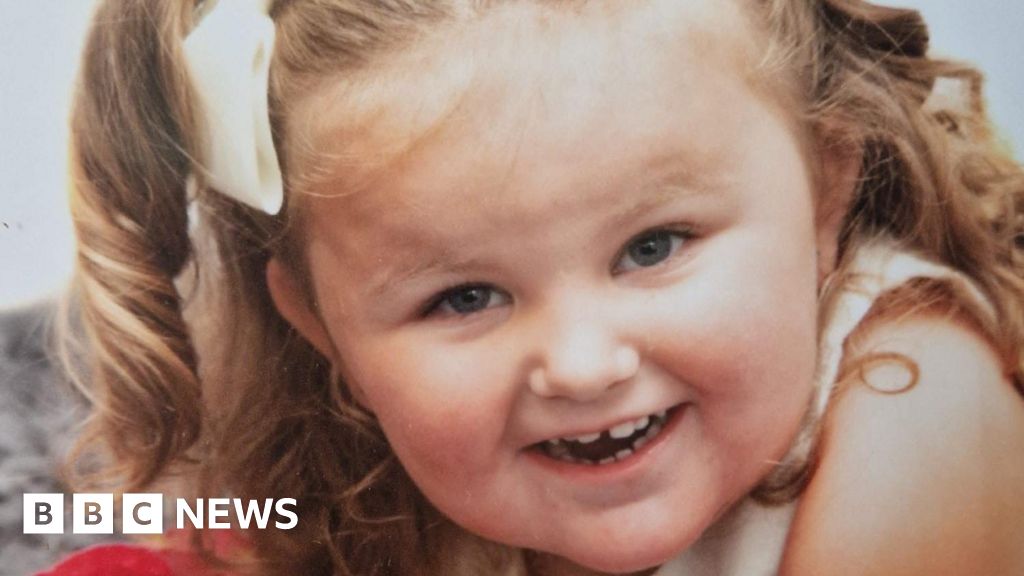Image source, Family distribution
- Author, Adam Laver
- Role, BBC news
A grand jury has concluded there were “missed opportunities” to treat a four-year-old girl who visited the emergency room and a GP in the 48 hours before her death.
Makenna-Rose Thackray died on December 20, 2022 after she stopped breathing and went into cardiac arrest.
She had been taken by ambulance to Pinderfields Hospital in Wakefield two days earlier, but was sent home after her family waited six hours for treatment without success. They visited a GP the following day and were sent home without antibiotics.
A lawyer for Makenna-Rose’s family said the evidence showed the girl’s death was “completely preventable”.
‘Understaffed’
On December 9, 2022, Makenna-Rose was diagnosed with scarlet fever, caused by the bacterial infection Strep A.
In late 2022, an outbreak of Strep A occurred in the UK, with pharmacists across the country reporting major shortages of penicillin.
On December 18, the young man was taken to the emergency room of the children’s hospital, but the investigation found that the two nurses had treated nearly 80 children that night, instead of the 30 to 40 who could have been safely treated.
Earlier in the proceedings, Helen Parker, one of the nurses on duty that night, described the shift as “one of the worst”. When asked if there was a shortage of staff, she replied: “Absolutely, yes.”
Makenna-Rose’s mother, Danielle Ledger, took her daughter home. She said she was not encouraged to stay.
The nurse said she had encouraged Mrs. Ledger to stay there.
Family doctor Nand Kishar Nemana, who saw her the next day, said he was not aware that Makenna-Rose had vomited blood the previous night or had been taken to hospital by ambulance.
He determined that the Rothwell family had the flu.
Makenna-Rose died the next day.
Image source, Family distribution
The medical cause of death was explained by the court as natural causes, namely invasive Strep A and 1B influenza A (flu).
Before coroner Oliver Longstaff was sent to court to deliberate, he drew up a list of facts to help the jury at the Wakefield inquest reach a decision.
- Makenna-Rose was given a PAWS (paediatric advanced warning score) of seven at 20:15 GMT on 18 December 2022, she should have been seen by a mid-level medical professional within 20 minutes of arriving at hospital
- If observation had not been made within 30 minutes, Makenna-Rose should have been seen by a specialist
- The observations should have continued every hour, but Makenna-Rose was not seen
- The young lady should have undergone a blood test, but it was not taken from her
- A reason should have been recorded as to why a blood test was not done, but this was not done either
- Makenna-Rose was supposed to have a sepsis screening test, but she didn’t.
The jury found there had been “missed opportunities” because Makenna-Rose was not observed during her six-hour wait at Pinderfields.
It turned out that the hospital was “significantly busier than normal”, meaning that Makenna-Rose could no longer be seen.
The jury also found that Dr. Nemana’s treatment “would have been different” if he had known about Makenna-Rose’s hospitalization and her previous blood donation.
The investigation was closed after the grand jury announced its findings.
‘Heartbreaking’
Defence lawyer Gareth Naylor said afterwards that Makenna-Rose’s family had shown “a great deal of courage and dignity” during the inquest into her death.
“The evidence presented during the investigation shows that her death was entirely preventable,” he added.
In a statement, Makenna-Rose’s parents said: “We came to this investigation hoping that those responsible for our daughter’s medical care would take some accountability for their mistakes, so that they could learn from their mistakes and prevent something like this from happening again.”
They continued: “It is heartbreaking to know that even at this stage, if the doctor had referred Makenna-Rose back to hospital, there is a good chance she would have survived.
“Those who met Makenna-Rose never forgot her.
“She was an extraordinary character, a real daddy’s girl.
“She loved to dance and adored her animals, her pet rabbit and puppy, Floss, who she took to school in her doll’s pram.
“We all miss her so much.”
If you have experienced the issues discussed in this story, you can find help and support at BBC Action Line.
